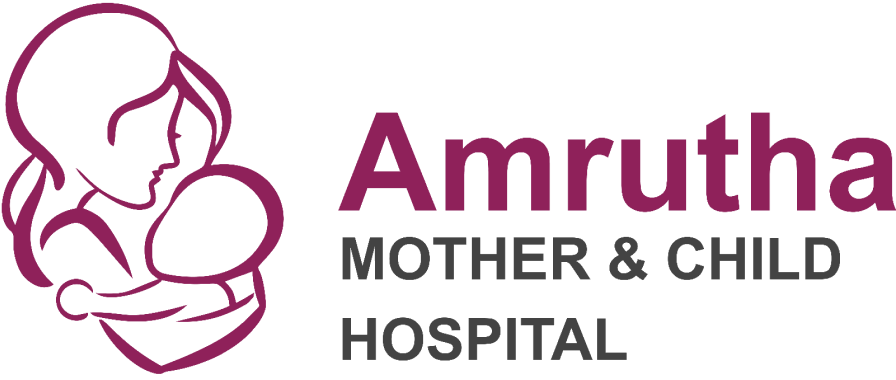

Neonatal Intensive Care Unit (NICU) Hospital In Kakinada
A dedicated medical facility offering advanced care for premature and critically ill newborns. The NICU provides continuous monitoring, life-saving interventions, and specialized treatments to ensure the best outcomes for these fragile patients.
Procedures of Neonatal Intensive Care Unit (NICU)
Admission Process
- Assessment: Upon arrival, the newborn undergoes a comprehensive medical evaluation, including physical exams and diagnostic tests.
- Stabilization: Medical staff stabilize the baby’s vital functions, such as breathing, heart rate, and body temperature.
- Parental Guidance: Families receive an overview of the NICU procedures, equipment, and visitation policies.
Continuous Monitoring
- Vital Signs: Heart rate, respiratory rate, oxygen levels, and blood pressure are monitored using specialized equipment.
- Neurological Monitoring: For at-risk infants, brain activity may be tracked using tools like EEGs.
Respiratory Support
- Oxygen Therapy: Supplemental oxygen is provided if the baby has difficulty breathing.
- Ventilation: For severe respiratory distress, mechanical ventilators or CPAP machines assist with breathing.
Nutritional Support
- Parenteral Nutrition: Premature infants may receive nutrients intravenously until they can tolerate feeding.
- Tube Feeding: If direct breastfeeding or bottle feeding isn’t possible, a feeding tube delivers milk or formula.
Thermal Regulation
- Incubators: Babies are placed in temperature-controlled incubators to maintain optimal body temperature.
- Radiant Warmers: Used for quick warming during medical procedures.
Medications and Treatments
- Antibiotics: Administered to treat or prevent infections.
- Specialized Drugs: Medications for conditions like neonatal jaundice or pulmonary hypertension are provided as needed.
Developmental Care
- Surfactant Therapy: Administered to help lungs function in premature infants.
- Blood Transfusions: Provided when necessary to address anemia or blood loss.
Specialized Procedures
- Positioning and Handling: Infants are positioned to promote comfort and development, with minimal disruption.
- Parental Bonding: Skin-to-skin contact (kangaroo care) is encouraged to foster bonding and improve outcomes.
Infection Control
- Sterile Environment: Strict hygiene protocols prevent infections.
- Regular Screening: Infants are monitored for any signs of infection.
Discharge Planning
- Parental Training: Parents are educated on baby care techniques, such as feeding and monitoring at home.
- Health Follow-Ups: A discharge plan includes pediatrician visits and specialist consultations if required.
Key Considerations in Neonatal Intensive Care Unit (NICU)
- Specialized Medical Equipment: Advanced devices like ventilators and incubators are essential for stabilizing and supporting newborns in critical conditions.
- Expert Medical Team: A team of neonatologists, nurses, and therapists ensures comprehensive and specialized care for each baby’s needs.
- Infection Control Measures: Strict hygiene protocols are crucial to protect vulnerable newborns with underdeveloped immune systems from infections.
- Parental Involvement: Encouraging activities like skin-to-skin contact and bonding helps improve the emotional well-being and recovery of newborns.
- Continuous Monitoring: Round-the-clock tracking of vital signs ensures timely detection and intervention for any complications.
FAQs About Neonatal Intensive Care Unit (NICU)
- What is the Neonatal Intensive Care Unit (NICU)?
The NICU is a specialized hospital unit designed to care for newborns who are born prematurely or have serious health conditions that require intensive monitoring and treatment. - When would my baby need to be admitted to the NICU?
Babies may need NICU care if they are born prematurely, have low birth weight, breathing problems, infections, or require specialized treatments like surgery or temperature regulation. - What types of conditions do babies in the NICU have?
Common conditions include prematurity, respiratory distress syndrome (RDS), jaundice, infections, congenital heart problems, and birth defects. - How long will my baby stay in the NICU?
The length of stay varies depending on the baby’s condition. Some may stay for only a few days, while others may need care for weeks or even months, depending on their recovery and progress. - Can I visit my baby in the NICU?
Yes, most NICUs have open visiting hours, but due to the delicate nature of the care, some restrictions may apply. Parents are typically allowed to visit anytime, but other visitors may have limited access. - Can I breastfeed or hold my baby in the NICU?
In many NICUs, parents are encouraged to hold their babies (kangaroo care) and breastfeed, if possible, or pump breast milk. However, this depends on the baby’s condition and medical needs. - What kind of monitoring and equipment does the NICU use?
Babies in the NICU may be connected to monitors that track vital signs such as heart rate, oxygen levels, and breathing. They may also use incubators, ventilators, feeding tubes, or IVs for nourishment and medication. - How can I support my baby while in the NICU?
You can support your baby by visiting regularly, engaging in skin-to-skin contact, providing breast milk, and being involved in the care process as much as the baby’s condition allows. - What should I expect emotionally while my baby is in the NICU?
It’s normal to feel overwhelmed, anxious, or even scared. The NICU team will provide emotional support, and parents should seek help from counselors or support groups if needed.
What happens when my baby is discharged from the NICU?
Before discharge, the NICU team will ensure the baby is stable and can breathe, feed, and gain weight on their own. Parents will be given instructions for continued care at home, including follow-up appointments and any ongoing treatments.
